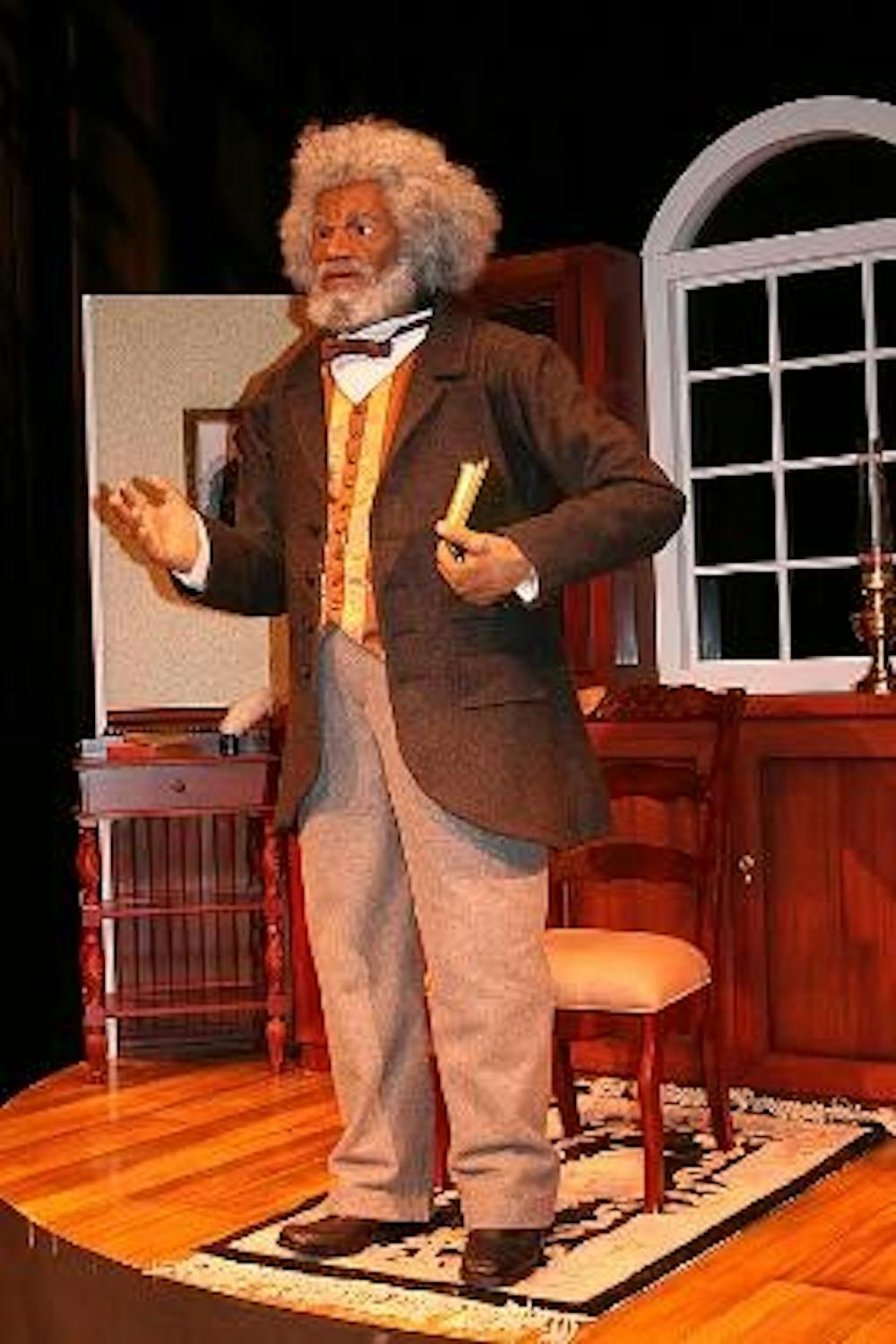As the cliché goes, "legends never die - or are at least resurrected as robots." An exhibition featuring a robotic life-sized Frederick Douglass will take place in Southeast D.C. during the first week of February for Black History Month.
This exhibition, however, promises to be more than a simple gimmick. Douglass will be programmed to answer from a selection of more than 55 questions at the beginning of each session, with much of the information drawn from his popular autobiography. The following discussion will then be moderated according to the different age groups scheduled to attend. Elementary school students will mainly discuss what significance some powerful speeches have had on current events. Middle school to high school students will mainly discuss the importance of education and proper conduct, as well as how speech can be used as a tool to affect social change. Adults will discuss what lessons Frederick Douglass holds for today's youth.
According to Robin Y. Harris, manager at THERAC, adults end up most deeply affected to the point of crying because of how they valued education when they grew up. Additionally, they see the youth of today as not taking advantage of the opportunities that they wish they had. Different personal stories come out during the discussion that follows.
Douglass will also be expected to recite significant excerpts from his speeches totaling over two hours in length. Southeast D.C. has special pride in Douglass, since he moved to the Anacostia neighborhood at approximately the age of 60 in 1877 after his home in Rochester was burned down due to suspected arson. Douglass will be set in an exact replica of his Anacostia home's study.
The Douglass exhibit is significant because he holds a special place in the history of civil rights as he was a former slave who ended up working closely with the American government as well as with the women's rights movement.
While a slave, he first taught himself and then others to read. When he was placed with an overly harsh slave owner, Douglass violently resisted one of his frequent beatings and eventually escaped to the North. His public speaking skills were quickly recognized, and he went on a speaking tour, which included two years in England and Ireland. His experience influenced him to also become an advocate of Irish independence.
Douglass was a moderate, widely respected force in the abolitionist movement. He controversially came to believe that the constitution could be used to advocate for abolition. He tried to discourage John Brown from attacking the federal armory as part of his slave rebellion, and also tried to discourage Southern blacks from migrating to isolated communities in Kansas because of the oppression that followed the end of Reconstruction. He was also very controversial towards the end of his life, even within his own family, when he married a white feminist who was 20 years younger than him. It is not surprising, though, considering he attended the Seneca Falls Convention and died on the way back from another women's rights convention.
Douglass worked closely with Lincoln in helping to recruit blacks to fight for the Union Army and in facilitating the freeing of slaves. Douglass later served as a diplomat to Haiti and then to the Dominican Republic. He also eventually served as a U.S. Marshall and the recorder of deeds for D.C. Douglass was the first black person to run for vice president, as the running mate of Victoria Woodhull on the Equal Rights party ticket in 1872. He was also the first black man to receive a single vote for president at the Republican National Convention of 1888. Douglass is best known for his autobiography, "Narrative of the Life of Frederick Douglass," which was a best seller when it was published and is still widely read today.
On Tuesday, adults - including AU students - will be welcomed to the exhibition starting at 7 p.m. The cost is $3 and registration is available by calling 202-484-3272.
You can reach this writer at thescene@theeagleonline.com.





